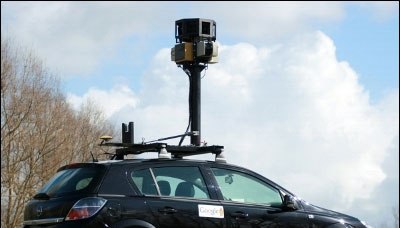

Bowing to pressure from Europe’s data protection authorities, Google is building a service that lets wireless Internet access point owners opt out of the search engine provider’s location services.
Leveraging GPS systems, cellular phone towers and Wi-Fi access points such as routers, Google has amassed a treasure trove of names, locations and identities of phones, which the company uses to deliver more relevant search results. For example, the Google Maps for Mobile application helps people find themselves and nearby places and attractions on a map. And Google Places suggests businesses located near users based on the signals their smartphones produce. Users may then “check-in” to the location or even rate it.
Google is allowing users to opt out of Google’s location services, which would no longer rely on those users’ Wi-Fi routers to pinpoint their approximate locations.
“Even though the wireless access point signals we use in our location services don’t identify people, we think we can go further in protecting people’s privacy,” wrote Google Global Privacy Counsel Peter Fleischer in a blog post.
The opt-out will be released worldwide this fall.
Why did this effort originate in Europe? That is where Google got into the most hot water over its so-called “Wi-Spy” incident.
In May 2010, Google drew the ire of privacy experts and government officials when it revealed its Street View cars collected users’ emails, computer passwords, Web browsing history and other information from residential and business owners’ Wi-Fi enabled routers.
This happened in nearly 40 countries, where Street View cars grabbed location and other data to help provide street-level views of surroundings. Google disclosed the 600GB of data pilfering, apologised, and ultimately pledged to stop collecting data via Wi-Fi routers, but the damage to its trust was done.
Connecticut state Attorney General Richard Blumenthal vilified the company for gross data collection and new Attorney General George Jepsen settled the matter with the company for an undisclosed fee. CORRECTION: New Attorney General George Jepsen reached an agreement with Google about the nature of the payload data the company collected from unsecured wireless networks in Connecticut. The disposition of that data has not been resolved.
However, European data protection officials, particularly in Germany and France, were incensed and have sought to crack down on Google’s data collection efforts.
France fined Google $142,000 in the matter. Germany’s data protection authorities went so far as create a stricter privacy code to forbid Wi-Fi data collection.
Apple fined 150m euros over App Tracking Transparency feature that it says abuses Apple's market…
OpenAI to release customisable open-weight model in coming months as it faces pressure from open-source…
Samsung's Bespoke AI-powered fridge monitors food to create shopping lists, displays TikTok videos, locates misplaced…
Huawei sees 38 percent jump in consumer revenues as its smartphone comeback continues to gather…
In world-first, China approves commercial flights for EHang autonomous passenger drone, paving way for imminent…
Microsoft closes down IoT and AI lab it operated in Shanghai tech district in latest…